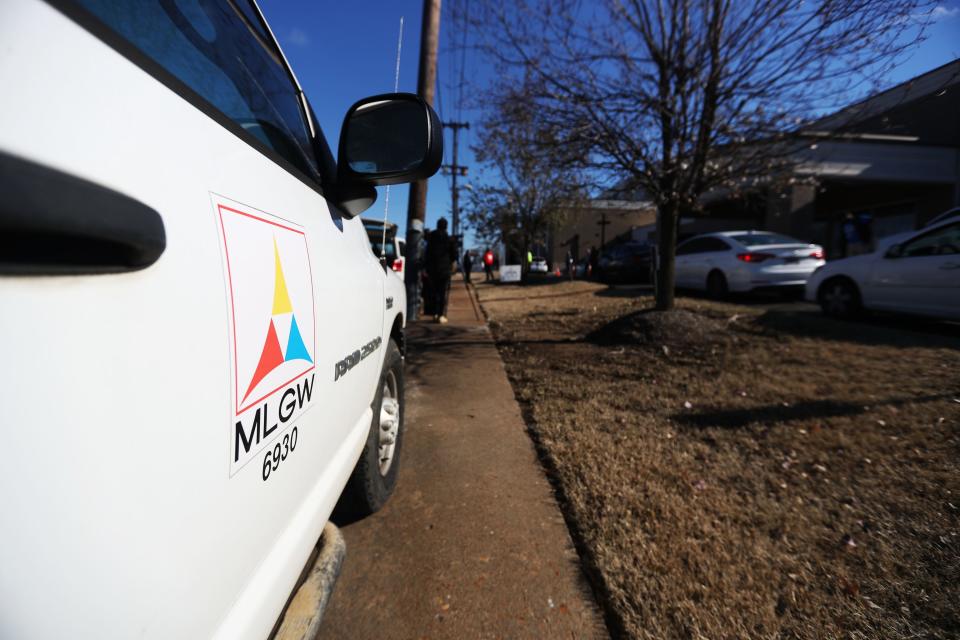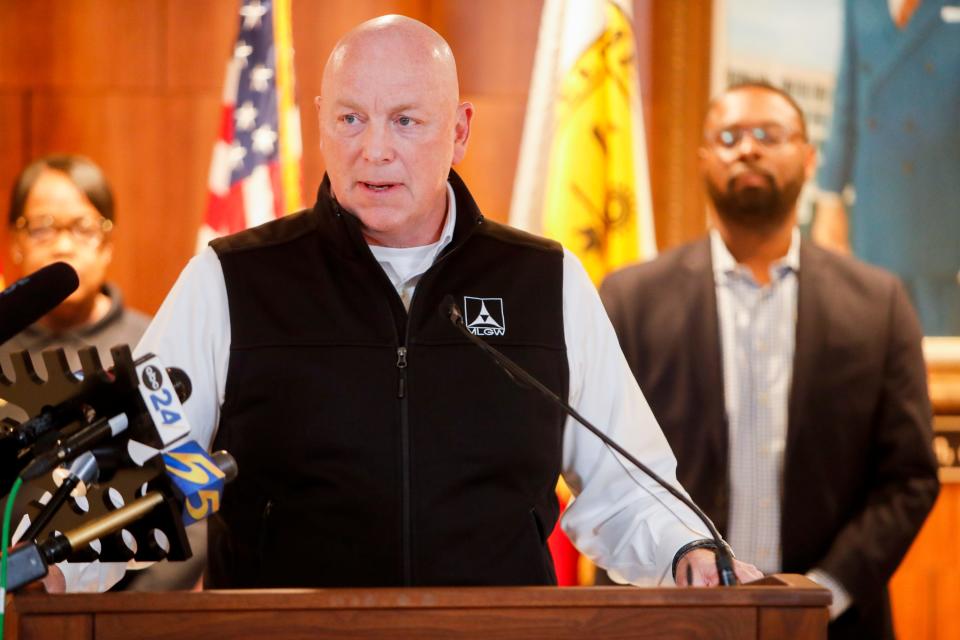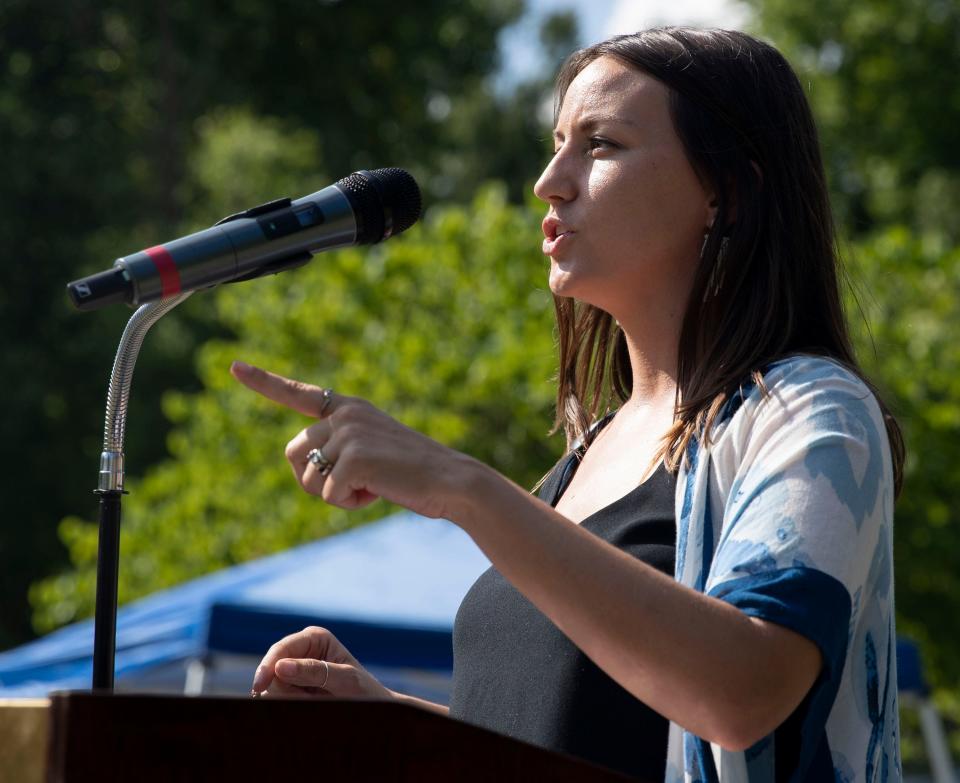Elon Musk's proposed Memphis supercomputer may add momentum for water recycling infrastructure
Elon Musk's promised supercomputer for xAI will need over a million gallons of water for cooling purposes a day, according to Memphis Light, Gas & Water President and CEO Doug McGowen. The amount is about 1% of the water the city-owned utility pumps from the Memphis Sand aquifer on a daily basis.
Most of the water pumped would be used for cooling purposes, and McGowen said xAI will join MLGW and Protect Our Aquifer — an advocacy group dedicated to ensuring Memphis' source of fresh drinking water is maintained — in the push for a water reclamation facility.
Though the plan to bring xAI to Memphis may add pressure to get the facility off the ground, Protect Our Aquifer has been asking officials for water reclamation since around 2017, but ramped up efforts in 2022 and 2023. The group wanted a facility like this specifically for the Tennessee Valley Authority, but said the water could be used for other industries in the area.
The facility, according to POA Executive Director Sarah Houston, would take wastewater that is treated at a city-owned wastewater treatment plant and further purify it. That water would then be distributed for cooling purposes to local industries.

Treated wastewater is currently dumped into the Mississippi River, and industries pump cooling water directly from the Memphis Sand aquifer.
"The [TE Maxon Wastewater Treatment Plant] south wastewater plant treats and discharges about 77 million gallons of water a day," Houston said. "So if we took 10 million gallons off the top — let's say 67 million gallons is now being treated and discharged. Then, in theory, it would be about 67 million gallons of water discharged into the Mississippi and that 10 million gallons a day going through the water recycling facility, then sent to TVA, xAI, the wastewater plant would keep some because they need clean water for the wastewater treatment process, and then it could potentially also be sold to Nucor Steel, which is another big water user."
Each of the industries Houston listed are located near one another, and located near the south wastewater treatment plant. The exact output of the plant is still being discussed, McGowen said, adding that you can scale the treatment facility to Memphis' needs.
"You certainly don't want to over-build it and then have no customers to use the water because then you're just paying for [nothing]," McGowen said in an interview Friday afternoon. "That's kind of the art and science together. How large of a system do we need? [Answering] that needs all the partners at the table because TVA is a heavy user, but they don't use it all the time and every day. The City of Memphis is a pretty steady user. We'll have to see how the consumption happens with the xAI project, but we think that's a pretty steady user.
"We need to size it to be the right size. There's 50 million gallons of possibility, but it's fair to say we're not going to build a 50 million gallon capacity."

In late 2021, The Commercial Appeal analyzed data that looked at the largest water consumers on MLGW's system. The highest consumer of water in 2020 was TVA's Allen Combined Cycle Plant, right up the street from where xAI is planned to be built. That year, the plant consumed 653 million gallons of water, averaging about 1.8 million gallons a day.
Those 2020 numbers were down due to maintenance issues, TVA said at the time, and the 1.5 billion gallons used in 2019 — about 4.1 million gallons a day — was a more accurate depiction of its water use.
Though not meeting drinking water standards, water from these reclamation facilities is suitable for cooling. The water from a reclamation facility is often cheaper for companies, according to the U.S. Department of Energy's Federal Energy Management Program.
McGowen said he is unsure if the water treated at the facility would be cheaper than pumping from the aquifer, since it requires so little processing before being sent to facilities as drinkable water, but said the priority is to protect the Memphis Sand aquifer.
If Memphis were to build a water reclamation facility, it would be the first to be built in the Mid-South region, McGowen said. However, a number of these facilities exist across the country and world, and are heavily concentrated in arid climates that struggle with fresh water consumption.
Memphis currently does not have the fresh water concerns that California and other parts of the western U.S. have, but Houston said the focus should be placed on protecting both the quality and sustainability of the water that exists in the aquifer.

"You hear the Chamber of Commerce use the '100 trillion gallons of water in our aquifer' figure all the time," Houston said. "That number sounds like a lot, but that's if we drain our aquifer to literally zero. We don't want to drain our aquifer to nothing. There's a sustainable withdrawal number each year, where we can balance the natural recharge with what we are extracting every day. That's like balancing a bank account. Right now, we're over-drafting the bank account. We have to recognize that the 100 trillion gallons number is made up. We really have maybe 12% to 20% of that number in usable, extractable water below Shelby County."
Houston emphasized that the aquifer, when having too much water pumped from it, is similar to a finite resource due to the fact that it takes thousands of years for water to filter down to it.
In addition to reducing the strain on the aquifer, which would impact Shelby County in the long term, a water reclamation facility would cut back on the nearly 28 billion gallons of treated wastewater that is discharged into the Mississippi River from the south treatment plant on a yearly basis.
Though the organization has been working for years to land the water reclamation facility, Houston said it would require a number of approvals and be funded properly. The project, McGowen said, was currently in the planning stage, with an analysis about capacity and distribution about 60 days out.
No timeline or price tag has been assigned to the project, but McGowen said MLGW is in regular talks and that now would be a good time for the project to begin.
"There's significant federal funding available, specifically for water, and this would be a good opportunity," McGowen said. "We believe this is a good project to receive some federal funding for. It's something, I think, we can all get behind: How can you reuse that water a second time, no matter the purpose, rather than just having it once-through?"
Lucas Finton is a criminal justice reporter with The Commercial Appeal. He can be reached at Lucas.Finton@commercialappeal.com, or (901)208-3922, and followed on X, formerly known as Twitter, @LucasFinton.
This article originally appeared on Memphis Commercial Appeal: Memphis' planned xAI facility may help to improve water infrastructure

